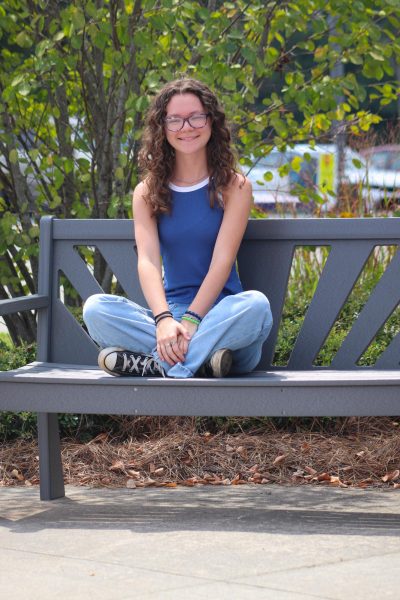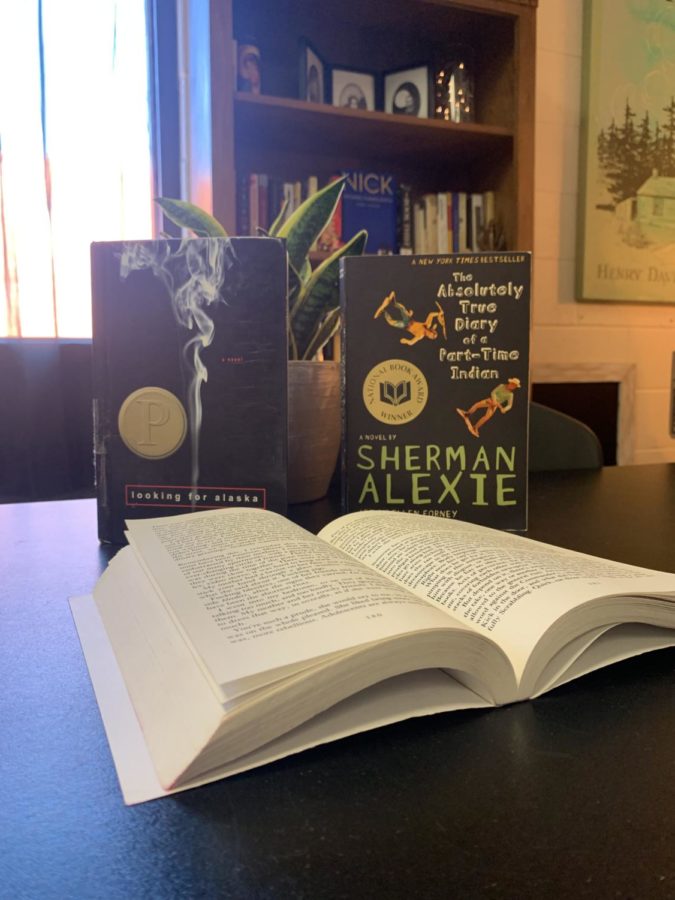Banning Books Benefits No One
Why do people ban books? It is usually for religious or political reasons: an idea, a scene, or a character in the book offends someone’s religion, morals, or political beliefs. Some people believe that children should be protected from profanity, morally offensive behavior, racism, or homosexual tendencies in books.
NFHS Media Specialist Mac Barron claims that they ban some of these books because of one scene that someone of a very vocal minority deems as explicit —which is not an objective term; it is completely subjective. “Then, they [the vocal minority] make enough noise, and certain protocols are established by the county to say [what we can and can not do],” said Barron.
English teacher Shelby Jones was specifically upset about the removal of “Me Earl and the Dying Girl” by Jesse Andrews because that “was a book [she] liked a lot.” Even Barron mirrored this sentiment over the book “Looking for Alaska” by John Green because he thinks “it’s the finest thing [Green has] ever written,” and he “connected with the book.” He even said he has “been a confused young man in a place that [he] was uncomfortable [in] and [also struggled] to make friends. [He has fallen] desperately in love with someone that [didn’t] give [him] the time of day, and [he has] dealt with personal tragedy.”
Students and parents went to the Forsyth County Board of Education meeting to discuss the banned books. Parent Amy Perlman, who wishes for the banning of more books, questioned, “Why are Forsyth County schools not honoring those legal requirements [professionalism and ethical standards]? The Georgia Professional Standards and Code of Ethics are in place [to] first and foremost to protect students. Why are the personal feelings and relationships of teachers and administrators put before the good of the children?” On the other hand, Student Ariani Depada, against the banning of books, stated, “Forsyth County doesn’t care about diversity. The author’s books that you banned are 27 percent openly queer, 72 percent female and 55 percent colored. But the explicit books that I have read in school written by a straight white man aren’t banned, makes it seem like you are targeting people of color and people that are queer.”
“Me Earl and the Dying Girl” by Jesse Andrews explains how to deal with trauma and turn it into something positive. “Nineteen Minutes” by Jodi Picoult is about a school shooting and how it changed the lives of a lot of people. This topic is relevant because of the most recent school shooting at Oxford High School in Michigan in November 2021. “All Boys Aren’t Blue” by George M. Johnson is about discovering sexuality and facing racial discrimination. Some don’t understand why the political views of other parents are impacting the education of the future generations in this county. Overall, banning books because they might seem offensive to religion or morals is detrimental to students because they can teach students the issues that follow these sensitive topics. Censoring what students read narrows their perspective on issues and their education on these topics.

Hiii! My name is Kinley, and I am a senior this year. This is my fourth year in journalism. I am excited to say I am the Editor and Chief of journalism...


